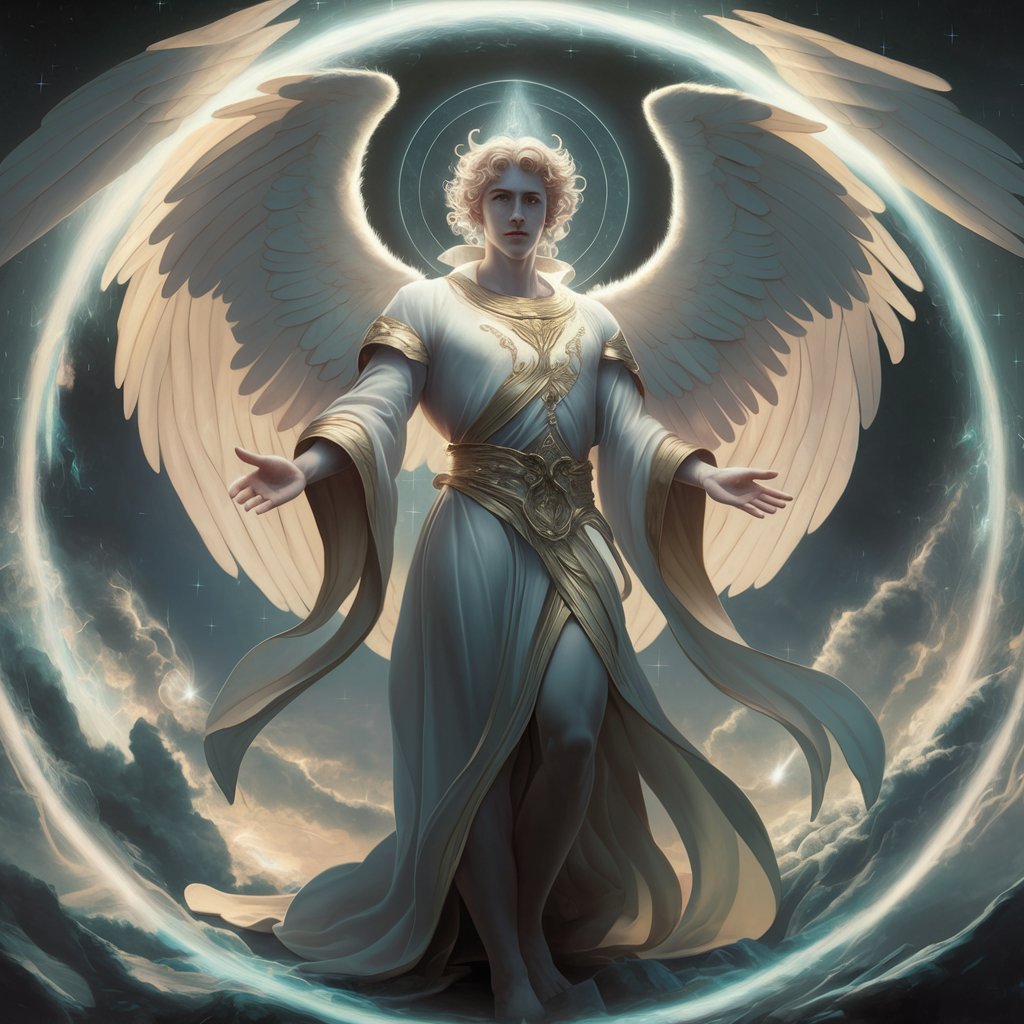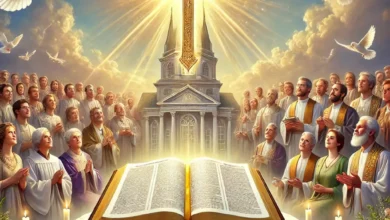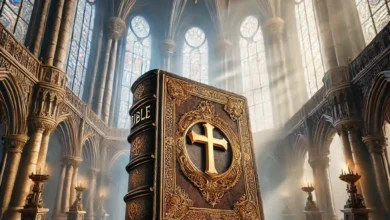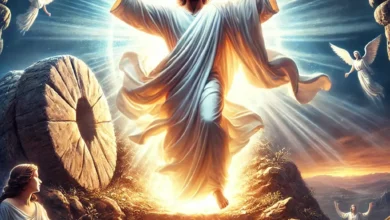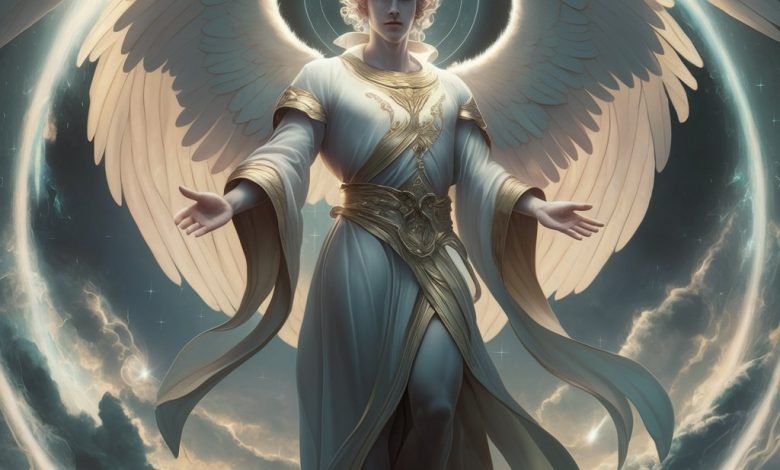
Is there an archangel named Raguel mentioned in the Bible?
Is there an angel named Raguel in the Bible? We are familiar with the names of famous angels, but who is Raguel? What does it even mean to say that he is an archangel?
Does the Bible mention an archangel named Raguel? Most of us are familiar with angels like Michael and Gabriel, who are mentioned in the Bible. We may also be aware of angels like Ariel (who is known by other names in literature) who exist outside the Bible. But the name Raguel might confuse us.
In today’s article, we will discuss Raguel, where he appears in literature outside the Bible, whether he appears in the Bible, and what we can learn from him. Is there an archangel named Raguel in the Bible? Let’s find out together.
فرست محتوا
Is there an archangel named Raguel in the Bible?
Let’s quickly answer the main question: Do we see the name Raguel anywhere in the Bible? First, we need to define what we mean by the Bible because Orthodox and Catholic traditions use a different Bible than we do. So, if we go by the Protestant Bible, no, the name Raguel does not appear in any of the 66 books. In fact, we only see two angels named in these books: Michael and Gabriel. Both Michael and Gabriel seem to be archangels, the highest-ranking angels in heaven. They appear in the Bible and speak with individuals like Mary and Daniel.
Now that we know Raguel isn’t mentioned in the Bible, where can we find him? For this, we need to refer to something called the Apocrypha. The Apocrypha is a collection of books that the Protestant Church values historically but does not consider inspired by the Holy Spirit. Let’s see what the Apocrypha has to say about this angel. As always, we must approach information from outside the Bible with caution. But considering that most church traditions at least value the Apocrypha, we can proceed with minimal caution.
What does the Apocrypha say about Raguel?
To learn about this archangel, we need to refer to a book called the Book of Enoch. In this apocalyptic book, we are introduced to seven archangels. Each seems to have a different role and often has various responsibilities. Some are in charge of certain groups of angels. Others help guide humans toward repentance. Others judge fallen angels.
So, what does Raguel do according to the Book of Enoch? Raguel seems to perform several tasks. First, according to Enoch chapter 20, he enforces punishment on the “world.” He also does this for something called the “luminaries,” who are spiritual beings. It can be assumed that these must be fallen angels.
It seems that he delivers these punishments to humans and demons when they disobey God or try to act outside His will. Some Catholic traditions also believe Raguel is the patron of the ministry of the sacrament or “holy orders.” However, it should be noted that many Catholics do not personally recognize Raguel as a patron.
He is often known as the archangel of justice and fairness. He is also sometimes known by the name Suryan. Beyond this, we have very little information about Raguel. Some legitimate church traditions do not consider the Apocrypha to be inspired, so most people regard any information about the archangel Raguel with skepticism.
With all this talk of punishment and justice, Raguel may not seem like a pleasant figure. But modern culture might lead us to think that way.
Read more : What does the Bible say about guardian angels?
Is Raguel too harsh to serve God?
Initially, when we hear that Raguel punishes humans and demons, it may seem cruel. We like the idea of archangels fighting demons, but what happens when angels intervene in human affairs? I think of the plague of the firstborn in Egypt when Pharaoh refused to let the Israelites go. Perhaps Raguel played a role in facilitating that. When we think Raguel is a “big bad guy,” we really misunderstand the nature of God and the order of angels established by Him.
God is so holy that sin can burn someone alive in His presence. Often, a purification process is necessary to extinguish that sin. As Christians, we call this process sanctification. The more we become like Christ, the more we feel the effects of sin.
Although Raguel’s role isn’t one I would have preferred as an angel — I think I would have preferred delivering messages to prophets and mothers — we can understand the importance of angels putting demons in their place. If a demon tries to trespass, it can cause devastation. It makes sense that God would appoint someone to lead angelic armies against such activities.
However, we can’t say for sure whether Raguel exists. We can respect the deep Jewish tradition rooted in the Apocrypha while knowing that we may never know these mysteries on this side of heaven. Either way, angels protect us. The Bible speaks of angels wrestling and fighting with demons. We can thank God that He has placed them for spiritual battles in our lives. And maybe if Raguel exists, we can be assured that God will not allow any power from hell to enter His realm.
What can we learn from Raguel?
Whether or not Raguel exists, his presence in literature can give us a glimpse into how heaven is organized and the work that angels do for us. We will uncover three key points from this archangel.
The first point is that God cares deeply about justice and fairness.
Often, when reading the Old Testament texts, we become uncomfortable. It seems very harsh. But when we do, we often forget the crippling power of sin over us. Sin destroys us from within. If we value God’s love, we must also value His justice. For everything done in the dark will be brought to light someday.
The second point is that God limits the power and realm of Satan (and demons).
Yes, Satan is at work in our world today. It gets darker day by day. But rest assured, they cannot operate outside of God’s plan. And if they do, God has a way of dealing with it. In the book of Job, we see that even Satan has to ask permission to bring pain and suffering. He even asks to sift Peter like wheat in the New Testament. Jesus answers his second request with a no.
Satan cannot overcome God’s sovereignty. We already know who will win the battle over this world. It’s only a matter of time before the war ends.
Finally, humans cannot overrule God’s plans either.
In many parts of the world, people actively try to prevent the spread of the Gospel. We have seen martyrdom throughout the history of Christianity and the church. When we face very evil people, we often fear what they can do to us. But just like demons, evil people cannot derail God’s will. The Bible often speaks about just punishment and rewards for the wicked at the end of time. Although we can pray that all people have miraculous encounters with God like Paul did on the road to Damascus, we know that not all will accept Christ. We can leave justice and fairness in His hands and continue to boldly share the Gospel.


